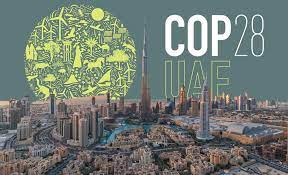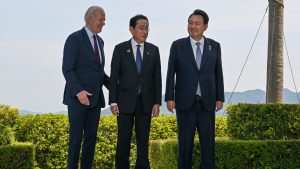
Well it can’t be bad news all the time; at least I hope not. Given the turbulence and death with two ongoing wars – Russia -Ukraine and Hamas and Israel, the renewal, or transition, of several summits is a positive global order sign. At least I hope so.
On the global summitry scene, this week we will witness the transition of G20 hosting from India to Brazil, presumably on December 1st. Thus, President Luiz Inacio Lula da Silva will lead Brazil as the 2024 host of the G20. And what can we expect from Brazilian leadership? According to statements from President Lula:
“Brazil will focus on reducing hunger and poverty, slowing climate change and global governance reform when it heads the G20 group of the world’s largest economies starting next month, President Luiz Inacio Lula da Silva said on Thursday.”
Brazil is planning to hold the annual leaders’ summit in November 2024. And as Lula has declared:
“I hope we can address the issues that we need to stop running away from and try to resolve,” Lula at a meeting with cabinet ministers to lay out Brazil’s priorities for the G20.”
Though Lula had, I suspect, hoped to take a triumphant turn as host of the G20, his leadership has been dampened, I suspect, with the election of the other Latin American regional power, Javier Milei. As described in the Guardian:
Javier Milei, [is] a volatile far-right libertarian who has vowed to “exterminate” inflation and take a chainsaw to the state, has been elected president of Argentina, catapulting South America’s second largest economy into an unpredictable and potentially turbulent future.
This is no companion for Lula in the G20 and the region. The volatility in recent national elections rolls on. In this regard note the Netherlands and the strong showing of the anti-Islamic Geert Wilders. After 25 years in parliament, his Freedom party (PVV) is set to win 37 seats, well ahead of the nearest rival, a left-wing alliance.
So there is volatility in a variety of national scenes that matches the uncertainty in the international scene. It is a troubling warning signal for advancing collective global governance.
Still forward effort can be had for the moment internationally. Notably we can point to the gathering of foreign ministers of South Korea, Japan and China. This is the first Triple Summit gathering of foreign ministers since 2019. Faced with the pandemic but more pointedly the tensions between Koea and Japan no Triple Summit gathering has occurred. As chronicled in the SCMP: “… the host, South Korea’s Park Jin, said after the meeting that the three ministers reaffirmed their agreement to hold the summit as soon as mutually convenient, according to Seoul-based Yonhap News Agency.
“We will continue efforts to make sure that the holding of a summit will materialise in the near future,” Park was quoted as saying.”
The key to this emerging initiative is the current improvement in relations between Korea and Japan. This easing of tensions has reopened the prospect of trilateral gatherings and the matching Indo-Pacific gatherings that includes the United States with this Trilateral effort. It is not an answer to the tensions generated by the US-China rivalry but it builds a better Indo-Pacific base.
And in the category of renewed focus, and it is, is the major climate gathering – starting this Thursday, COP28. As described by the think tank, IISD
“The 2023 UN Climate Change Conference will convene from 30 November to 12 December 2023 in Dubai, United Arab Emirates (UAE). It will comprise the 28th meeting of the Conference of the Parties (COP 28);
In a letter dated 13 January 2023, the UNFCCC Secretariat announced that Sultan Ahmed Al Jaber, Minister of Industry and Advanced Technology and UAE Special Envoy for Climate Change, has been appointed to serve as COP 28 President-Designate.”
Many were disappointed by this COP28 leadership choice. However, it was a regional choice question with the Asia-Pacific Group determining the President (The regional groups include: The African Group, the Asia-Pacific Group, the Eastern Europe Group, the Latin American and Caribbean Group (GRULAC) and the Western European and Others Group (WEOG)) but it is what it is and COP 28 does appear to signal some progress. As Lisa Friedman of the NYTimes points out, progress may well be had at COP28 because of the following:
“The first is what’s called the global stocktake. This is the first formal assessment of whether nations are on track to meet a goal they set in Paris in 2015 to limit the rise in average global temperatures to 1.5 degrees Celsius (2.7 degrees Fahrenheit) above preindustrial levels.
…Second, there is an expectation that nations will finalize the so-called “loss and damage” fund they agreed to create last year. The major questions to be resolved include who will pay into the fund and who will have access to the money.
Finally, there is the political agreement that could emerge from the summit. It is likely that nations could agree on a deal to replace polluting fossil fuels with clean energy such as wind and solar power. The question is whether nations agree to phase out fossil fuels and, if so, what caveats are attached.”
The gathering is huge. Diplomats from nearly 200 countries, and many heads of state and government, will gather to try to draft a plan to accelerate the global transition away from fossil fuels.
We shall see, but the possibilities are there especially given that China and the US confirmed following agreement between John Kerry and Xie Zhenhua that the US and China are committed to:
“Both countries support the G20 Leaders Declaration to pursue efforts to triple renewable energy capacity globally by 2030 and intend to sufficiently accelerate renewable energy deployment in their respective economies through 2030 from 2020 levels so as to accelerate the substitution for coal, oil and gas generation, and thereby anticipate post-peaking meaningful absolute power sector emission reduction, in this critical decade of the 2020s.”
Even in these troubled times, it appears that progress is possible. We will follow it.
This Post was originally a Substack Post at Alan’s Newsletter
https://open.substack.com/pub/globalsummitryproject/p/transition-and-renewed-focus?r=bj&utm_campaign=post&utm_medium=web
Image Credit: GreenBiz

